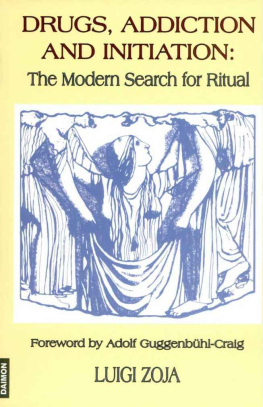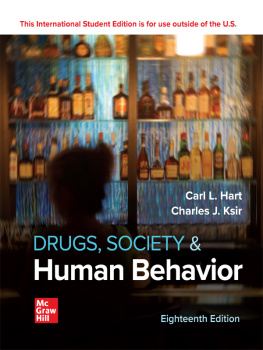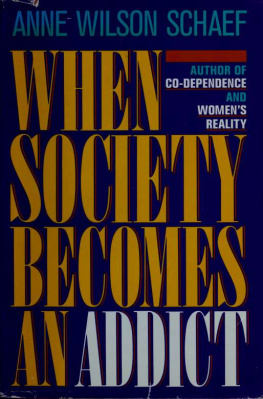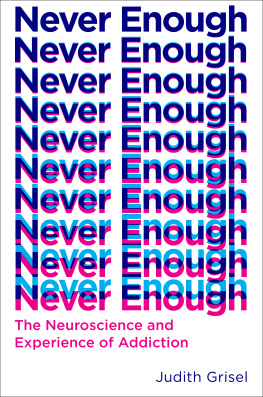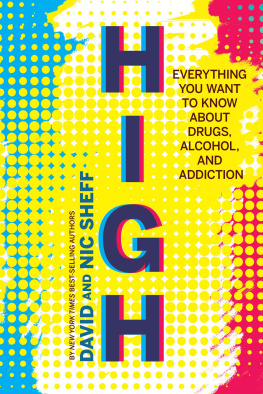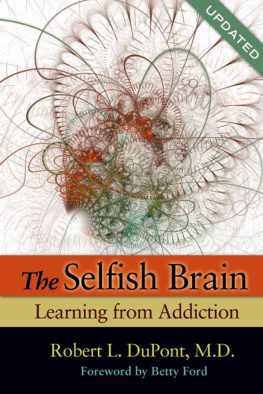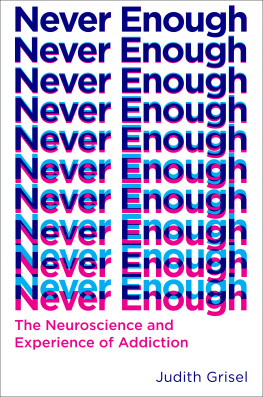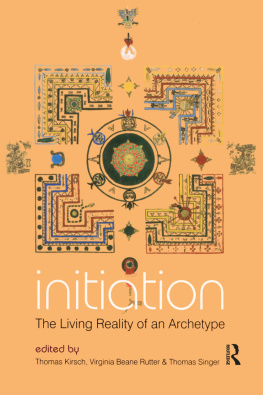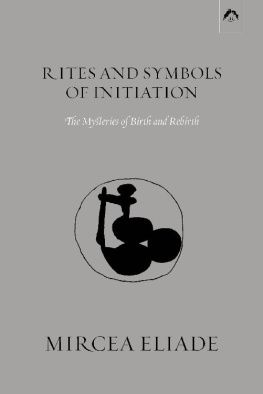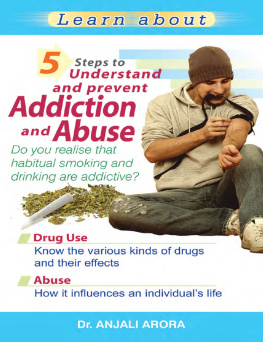Luigi Zoja
Drugs, Addiction
&
Initiation
The Modern Search for Ritual
Translated by Marc E. Romano and Robert Mercurio

Daimon
A previous English edition was published by Sigo Press, Boston, 1989
Italian edition published by Edizione Anabasi, Milan, 1993
Daimon Verlag - Am Klosterplatz - CH-8840 Einsiedeln Switzerland
Copyright 2012, 2000 Daimon Verlag and Luigi Zoja
ISBN 3-85630-595-5
All rights reserved - no part of this book may be reproduced in any form without permission in writing from the publisher, except by a reviewer who wishes to quote brief passages in connection with a review in a magazine or newspaper.
To Stefano and Sara
Foreword
Attitudes towards drug addiction are continually changing, so much so that one might speak of them in terms of stylish currents. Fifteen years ago drug taking practically became a cult. Prophets like Timothy Leary spoke of expanding consciousness, and numerous young people from all classes followed the drug apostles, these Pied Pipers from Hamelin. I recall an interview with a young drug-using couple. When the possible harmful effects of drug use were discussed, this turned out to be something completely incomprehensible to them. Only good can result from good. A drug high is something so marvelous that it would be against the law of nature if such a marvelous thing should have a pernicious effect in the long run.
Intellectuals in particular, who from the beginning enthusiastically took part in the drug cult, slowly became aware of the tragic results of drug abuse. But people did not quickly abandon what I would almost call the worship of drug addicts. There arose everywhere a certain faithfulness towards drug addicts; people saw in them the helpless sacrifice of an angry society, sensitive people suffering for us, who in our insensitivity hardly register the pervasive sickness of our society.
Today the interest in drug addiction, the cult and also the veneration of drug addicts as the sacrifice of an angry society has subsided. What remains are thousands of young people who are not getting off drugs, and who end up as pitiable figures in public squares, producing feelings of guilt, pity and dismay in passers-by.
Psychiatrists, psychologists, social workers, and not least the police, wring their hands in daily despair about these apparently burnt-out young people. A young man, numbed by drugs, passive, with only one interest, to get the stuff again as soon as possible, is a profoundly depressing sight. Where is the consciousness expanding effect then? Is this really the conscious sacrifice of a brutal society?
Luigi Zoja helps us understand the phenomenon in all its contradictions. He brings drug addiction into its larger cultural context, but on the other hand he does not use too high a style and does not lapse into sentimentality.
He attempts to understand the drug problem in connection with initiation, specifically with the absence of initiation rituals. On one hand, rituals of initiation are something decidedly important; on the other, the rituals that would satisfy these psychological needs today are for the most part lost to us. There are at any rate still traces of these initiation rituals all around us. I am reminded of the confirmation celebrations of the Catholic and Protestant churches; and, in many countries, military service is still experienced as an initiation. But all of these are still vestiges; very many young people experience nothing that even distantly approaches an introduction, an initiation into a larger association with its secular and religious ideas.
Luigi Zoja did not write his book in order to stress the importance of initiatory rituals. Most important to him is an understanding of drug addicts, but in a subtle way he shows how the drug addict in his addiction seeks initiation.
I find the present book to be of the greatest importance for anyone who has anything to do with drug addicts. The danger is always that, if one is involved with broken down, dispirited drug addicts, one becomes discouraged, indeed even starts to despise them and forget that a very complex and psychological process is playing itself out in them. The cultural exaltation and veneration of drug users fifteen years ago was, after all, not completely groundless, at least not any more so than todays critical and accusatory stance towards them. Drug victims, either addicts or users, are not above all helpless weaklings, but rather fellow people who suffer under an unsatisfactory cultural formation and often collapse upon it. The difficulties of understanding drug addicts are to keep all this constantly in view and to realize completely, on the one hand, the misery and the helplessness of these addicts and, on the other hand, the laudable attempt of these unhappy people to arrive, in a bizarre and almost perverse manner, at an initiation, at an introduction into the secrets of life.
Zoja is, like no one else, capable of understanding drug addiction. He has worked intensively in therapy with drug addicts, and thus has practical experience, but he is also a depth psychologist with a Jungian background, and as such he is in the position to recognize and take seriously the deeper motivations and the unfulfilled needs of drug addicts.
Strangely enough, one generally understands by drugs only a specific type of intoxicant, though not alcohol. But alcohol is also a drug, and an alcoholic is a drug addict. Luigi Zoja is concerned in his book with drug addiction in the widest sense, including alcoholism. Every substance which causes mental alterations can be viewed as a drug and can make one addicted, be it a hard or a soft drug, be it hashish, LSD or heroin, be it alcohol or psychoactive substances.
There exists today the great danger that drug addiction here taken in the widest sense is understood only on the basis of individual psychopathology, and ultimately on the basis of a pathogenetic family history. In contrast to the attitude of fifteen years ago, the pendulum has swung all too much back to the other side. The larger cultural connections still interest only a few psychiatrists and psychologists. Zoja concerns himself with the problem of addiction not from a momentary stylish attitude; rather, he possesses a broader and temporally less specific overview of the phenomenon. His book is the expression of a deep care for a large group of suffering fellow people who need our understanding and our help.
Adolf Guggenbhl-Craig
1. Introduction
The incest taboo is generally considered the most primordial, the most deeply rooted and widespread of cultural institutions. It is hard to imagine how vast and complex the consequences would be if that taboo were somehow to disappear. The same holds true for other cultural institutions, most strikingly that of initiation. In the introduction to his Rites and Symbols of Initiation, Mircea Eliade writes that the disappearance of initiation is in fact one of the principal differences between the ancient world and the modern.
The institution of initiation was once almost as widespread and pervasive as the incest taboo, but its gradual dissolution is a relatively diffuse and more recent phenomenon, brought about for the first time by our own modern Western civilization. Not only do we lack any conclusions as far as the consequences of this loss are concerned, but the problem itself has only been addressed superficially, if at all. The only author who frequently addresses the problem is, once again, Eliade.
Initiation played a prominent role in all traditional societies not yet profaned by industrialization and modernization. In our contemporary culture, however, and especially in the last few decades, one seems to be able to identify various attempts at reviving initiation and the esoterism associated with it. In a society which tends toward the leveling out of differences in the negative sense of the word, the need to feel different in a positive sense is reawakening the need to belong to an elect group possessing some additional and deeper truth.

